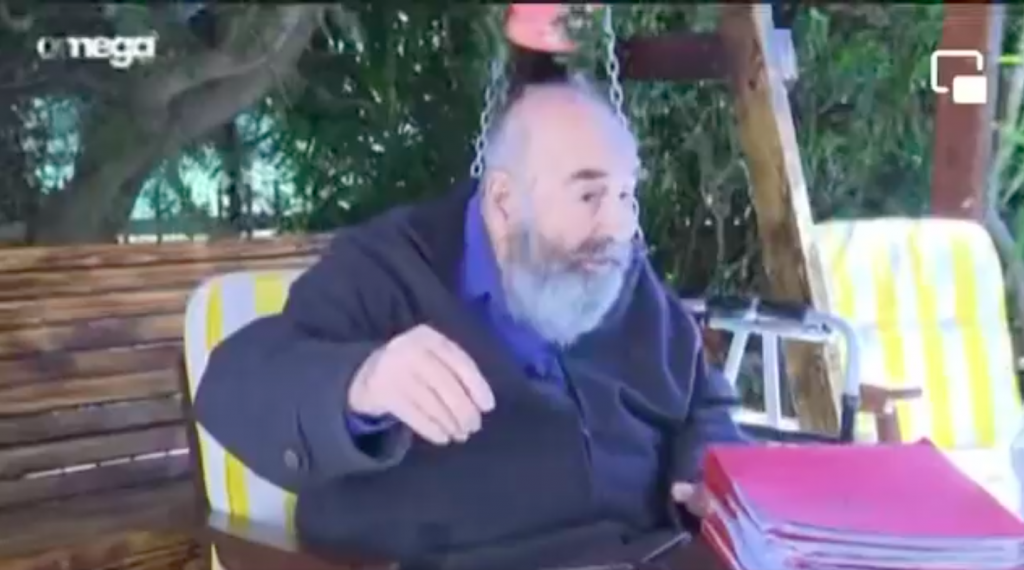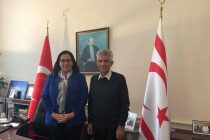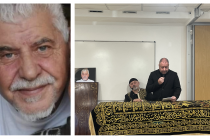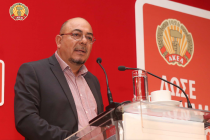An organisation representing the relatives of Turkish Cypriots killed in conflict has lodged a formal complaint with police in the Turkish Republic of North Cyprus after two elderly Greek Cypriots confessed to killing dozens of Turkish Cypriots.
The admission, made last week by Athos Petridis and Neoptolemos Leftis during a television programme for South Cyprus channel Omega, shocked Turkish Cypriots and prompted the TRNC Martyrs’ Families and Disabled Veterans Association (KKTC Şehit Aileleri ve Malül Gaziler Derneği) to act.
Petridis and Leftis, both now in their eighties, were part of Greek Cypriot terror group EOKA that were behind the murders of hundreds of Turkish Cypriots during the Cyprus Conflict that started in December 1963.
In their interview with Omega, the pair explained without any remorse their part in the brutal campaign against Turkish Cypriots.
“We aimed to take 10 Turkish lives for each Greek Cypriot shot by the Turks,” the men said, before admitting they went on a killing spree that left 68 Turkish Cypriots dead.
Leftis said the order to kill came in 1964 after two military officers from Greece and a Greek Cypriot police officer were murdered by Turkish Cypriot militia. Stationed in Alsancak, the EOKA hitmen graphically explained how they would stop buses and rob their victims before shooting and then stabbing them.
“There were big cars carrying the Turkish Cypriots. We were waiting in Alsancak, Girne, stopping the vehicles and taking the Turks inside, taking their money, shooting them with guns, skewering them and then throwing them into the pits…”
“We were part of a force of about 500 men. We were ordered to kill 10 Turks for each Greek life. I’m asked about the 68 Turks we killed and where they are buried. Where will you find them, it’s been so long,” Leftis said on camera
The confessions led Association President Gürsel Benan to visit the TRNC Police General Directorate, where he filed a complaint on behalf of the families of the victims.
In a statement to the press after visiting the TRNC police headquarters, Benan said, “We’ve lodged a criminal complaint as the Martyrs’ Families and Disabled Veterans Association with the TRNC Police about two Greek Cypriot murderers, Athos Petridis and Neoptolemos Leftis, who admitted to stopping passing Turkish buses, forcing the Turkish passengers off, taking their money, shooting them with a gun, then skewering them to death and burying them in pits.”
Bu sözler terör örgütü EOKA-B üyesi bir Rum’a ait!
“Kıbrıs Türklerini taşıyan büyük arabalar vardı. Biz Girne Alsancak’ta bekliyor, araçları durduruyorduk ve içindeki Türkleri aşağı indirip paralarını alıp silahla vuruyor, şişliyor ve sonra çukurlara atıyorduk…” pic.twitter.com/11hvcyDENZ
— Sefa Karahasan (@sefakarahasan) May 24, 2022
“We want the public to know that after we open a lawsuit in the Greek Cypriot part [of the island], we will take this issue to the UN [United Nations, EU [European Union] and ECHR (European Court of Human Rights),” added Benan.
The Cyprus Conflict
Greek Cypriots triggered the decade-long Cyprus Conflict with a coup on 21 December 1963 to seize control of the power-sharing government of the Republic of Cyprus. In ten-day campaign of terror known as “Bloody Christmas”, 133 Turkish Cypriots were killed and thousands displaced.
Despite being were heavily outnumbered, the Turkish Cypriot minority put up fierce resistance to defend their presence on the island.
A second coup instigated by Greece on 15 July 1974, deposed Greek Cypriot President Archbishop Makarios and installed notorious murderer Nicos Sampson in his place. It led to Turkiye’s intervention five days later as a Guarantor Power of Cyprus.
The war that ensued resulted in thousands of casualties for Greek Cypriots, and the mass killing of Turkish Cypriot women, children and the elderly from three Famagusta villages – Muratağa (Maratha), Sandallar (Sandalaris) and Atlılar (Aloa), and the men of Taşkent (Tochni) in Larnaca District.
At the end of 30 days of war, Turkiye divided the island into a Turkish North and Greek Cypriot as a means of creating a permanent peace.
No attempt to investigate and prosecute war criminals
Both sides have reported war crimes, including rape, the mass murder of civilians, and the deliberate killing of prisoners of war during the ten year conflict. No one has ever been brought to justice.
In 2016, Erato Kozakou-Marcoullis became the first senior Greek Cypriot official to acknowledge the mass graves of Turkish Cypriots in 1974. Writing a heartfelt message in Greek, English and Turkish on her personal Facebook page, she apologised for the “horrific crimes” against Turkish Cypriots.
“I feel the need to express a sincere public apology to our Turkish Cypriot compatriots for the horrific crimes committed on 14 August 1974 by EOKA B extremists against 126 women and children in the villages of Aloa, Maratha and Sandalaris and 85 civilian men (including a boy of 12 years) from the village of Tochni.”
The former Greek Cypriot Foreign Minister also admitted that the authorities had not tried to locate and prosecute the perpetrators: “Unfortunately, during the past 42 years no investigation has been conducted by the official state of the Republic of Cyprus to unravel the truth behind these crimes and none of the culprits has been brought to justice.”
Kozakou-Marcoullis, who served as Foreign Minister under Tassos Papadopoulos between 2007 and 2008, and again between 2011 and 2013, during Demetris Christofias’ presidency, called for a “Truth Commission” to help establish the facts behind the recent Cyprus tragedy, stating that, “without the truth there will be no reconciliation and without reconciliation there will be no peaceful coexistence.”





